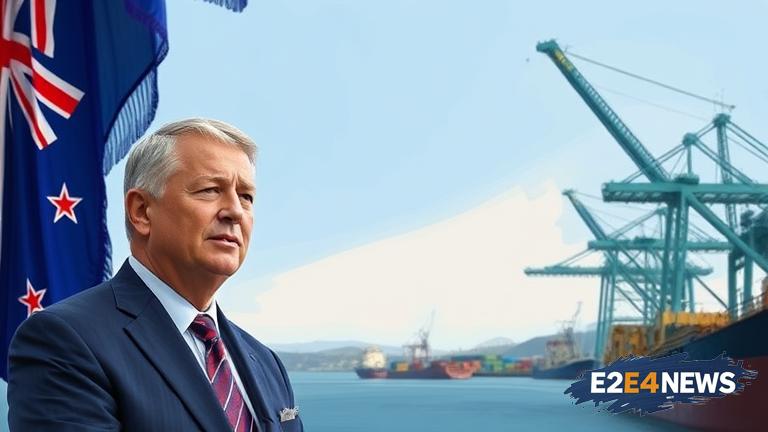A New Zealand politician, Jones, has come under fire for comments made about Ngati Kuku, a Maori iwi, during a dispute over port expansion. The comments, which were made in a public forum, have been deemed insensitive and disrespectful by many. The port expansion dispute has been ongoing for several months, with Ngati Kuku and other local iwi expressing concerns about the potential environmental and cultural impacts of the project. Jones’ comments have been seen as dismissive of these concerns and have sparked widespread outrage. The politician has been accused of being out of touch with the local community and of prioritizing economic interests over cultural and environmental concerns. The Ngati Kuku iwi has a long history in the region and has a deep connection to the land and the sea. The port expansion project has the potential to disrupt this connection and cause significant harm to the environment. The local community has been vocal in its opposition to the project, with many expressing concerns about the potential impacts on the marine ecosystem and the cultural heritage of the area. Despite these concerns, the project has been given the green light by local authorities, sparking accusations of a lack of transparency and accountability. The dispute has highlighted the need for greater consultation and engagement with local communities, particularly indigenous communities, in the planning and decision-making process. It has also highlighted the importance of protecting cultural heritage and the environment. The politician’s comments have been widely condemned, with many calling for an apology and for greater respect to be shown to the Ngati Kuku iwi and other local communities. The incident has sparked a wider debate about the relationship between the government and indigenous communities, with many calling for greater recognition and respect for Maori rights and interests. The dispute has also highlighted the need for greater awareness and understanding of Maori culture and history, particularly among politicians and decision-makers. The Ngati Kuku iwi has a rich and vibrant culture, with a strong connection to the land and the sea. The iwi has a long history of fighting for its rights and interests, and has been at the forefront of many struggles for indigenous rights and self-determination. The port expansion project has the potential to undermine this struggle and cause significant harm to the iwi and its people. The incident has sparked a sense of outrage and betrayal among the local community, with many feeling that their concerns and interests have been ignored and disrespected. The politician’s comments have been seen as a slap in the face to the Ngati Kuku iwi and other local communities, and have sparked calls for greater accountability and transparency in government decision-making. The dispute has highlighted the need for greater respect and recognition of Maori rights and interests, and for greater awareness and understanding of Maori culture and history. It has also highlighted the importance of protecting the environment and cultural heritage, and of prioritizing the needs and interests of local communities. The incident has sparked a wider debate about the role of government in protecting the rights and interests of indigenous communities, and about the need for greater recognition and respect for Maori culture and history. The Ngati Kuku iwi and other local communities will continue to fight for their rights and interests, and will work to ensure that their concerns and interests are respected and protected. The politician’s comments have been widely condemned, and have sparked a sense of outrage and betrayal among the local community. The incident has highlighted the need for greater awareness and understanding of Maori culture and history, and for greater respect and recognition of Maori rights and interests.
